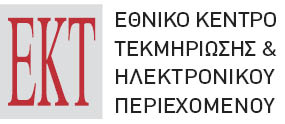Στη διατριβή αυτή παρουσιάζονται τα αποτελέσματα έρευνας σε δείγμα 1019 μαθητών και μαθητριών της Γ΄ τάξης (1,48 % του μαθητικού πληθυσμού) Γενικού Λυκείου, του σχολικού έτους 2007 – 08. Ο στόχος της έρευνας τριπλός: πρώτον η διερεύνηση των γνώσεων των μαθητών σε βασικές έννοιες και μηχανισμούς της μοριακής γενετικής καθώς και διαδικασιών της γενετικής μηχανικής. Δεύτερον, η αποτύπωση των στάσεων έναντι σύγχρονων εφαρμογών της βιοτεχνολογίας καθώς και των κριτηρίων που χρησιμοποιούν οι μαθητές για να αιτιολογήσουν την στάση τους και τρίτον, η συσχέτιση μεταξύ των γνώσεων και των στάσεων. Σύμφωνα με τα αποτελέσματά μας, οι μαθητές αντιμετωπίζουν σοβαρά προβλήματα γνώσεων στους προαναφερθέντες τομείς. Οι κύριες δυσκολίες τους εντοπίζονται στην κατανόηση της λειτουργίας του γονιδίου και της σύνδεσής του με άλλες δομές (πρωτεΐνες και χρωμοσώματα), στη γνώση της ύπαρξης του ίδιου γενετικού υλικού σε όλα τα κύτταρα ενός οργανισμού καθώς και στην άγνοια για την διαφορική έκφραση των γονιδίων στα διάφορα είδη κυττάρων και τέλος στη γνώση της καθολικότητας του γενετικού κώδικα. Επίσης, οι μαθητές δεν γνωρίζουν την έννοια του όρου «Βιοτεχνολογία» και τις σύγχρονες εφαρμογές της και συγχέουν τη Βιοτεχνολογία με τη Βιολογία, χωρίς να εστιάζουν στον όρο «τεχνολογία» που η πρώτη εμπεριέχει, όπως επίσης και τη γενετική μηχανική με τη μοριακή βιολογία. Όσον αφορά τη στάση έναντι εφαρμογών της σύγχρονης βιοτεχνολογίας, οι μαθητές εμφανίζονται θετικοί στη χρήση της γενετικής ανάλυσης, στη θεραπευτική κλωνοποίηση και στη γονιδιακή θεραπεία, ενώ εμφανίζονται αρνητικοί έναντι των ΓΤΟ, καθώς και έναντι της αναπαραγωγικής κλωνοποίησης και της επιλογής γενετικών χαρακτηριστικών. Τέλος, όσον αφορά τη σχέση μεταξύ γνώσεων και στάσεων φαίνεται ότι η καλύτερη γνώση επηρεάζει τη στάση, όχι όμως με ενιαίο τρόπο: σε άλλες εφαρμογές της βιοτεχνολογίας η στάση είναι θετική και σε άλλες αρνητική. Έτσι, αυτοί που έχουν περισσότερες γνώσεις γενετικής και βιοτεχνολογίας, είναι πιο θετικοί κυρίως έναντι της γονιδιακής θεραπείας και δευτερευόντως έναντι των ΓΤΟ, ενώ είναι πιο αρνητικοί στην αναπαραγωγική κλωνοποίηση και την επιλογή χαρακτηριστικών των απογόνων. Επίσης, δεν εμφανίζεται διαφοροποίηση (στατιστικά σημαντική) σε σχέση με τα διάφορα γενετικά τεστ για λόγους δικαιοσύνης και υγείας, ούτε επίσης και για τη θεραπευτική κλωνοποίηση. Με βάση τα αποτελέσματά μας αναφορικά με τα κριτήρια υιοθέτησης στάσεων των μαθητών έναντι εφαρμογών της βιοτεχνολογίας, φαίνεται ότι αυτά ήταν κυρίως η επίκληση κινδύνων, η επίκληση χρησιμότητας και τέλος η επίκληση ηθικής. Η επίκληση γνώσης δεν ήταν ιδιαίτερα συχνή.
This thesis presents the results of a research conducted on a sample of 1019 students attending high school on the 12th grade (1,48% of total student population) in schools which lead to general diplomas, of the school year 2007 – 2008. The objective of the research had three tiers: firstly to investigate the knowledge of students in basic concepts and fundamental knowledge of molecular genetics and genetic engineering procedures. Secondly, to record student attitudes towards modern biotechnology applications and the criteria they use to justify them and thirdly, to find the relationship between knowledge and the according attitudes.According to our results, students are facing serious problems of scientific knowledge in the above mentioned areas. Their main difficulties are found to be in the areas of understanding the way genes function and their association with other structures (proteins and chromosomes), the knowledge of the existence of the same genetic material in all cells of an organism, the ignorance of the differential expression of genes in different cell types, and finally the knowledge of the universality of the genetic code. Also, students do not know the meaning of the term Biotechnology and its modern applications and confuse Biotechnology with the science of Biology and do not focus on the word "technology" that the first one includes, and they also confuse genetic engineering with molecular biology. Regarding the attitude on modern biotechnology applications, students are positive to the use of genetic analysis for therapeutic cloning and gene therapy, and appear negative towards GMOs and against reproductive cloning and selection of genetic features.Finally, the relationship between knowledge and attitude tend to show that better knowledge affects attitude, but not in a unified manner: in some applications of biotechnology attitude is positive and in some others negative. Thus, those who have better knowledge of genetics and biotechnology are mainly more positive towards gene therapy and in a second level towards GMOs, while they are more negative against reproductive cloning and selection of offspring genetic features. There seems to be no (statistically significant) differentiation according to the various genetic tests for reasons of justice, for reasons of health and for therapeutic cloning.Based on our results as of the criteria through which students adopt attitudes towards biotechnology applications, it appears that these were mainly relied to risks and usefulness for mankind, and also morality. The invocation of knowledge was not very frequent.
 National Documentation Centre (EKT)
National Documentation Centre (EKT)



